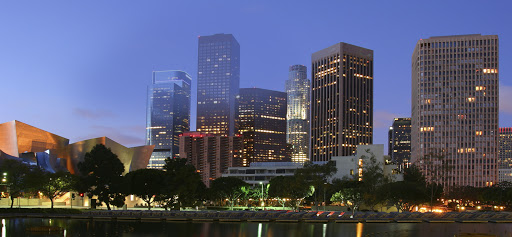
Plague Journal, Believing In Money
Money is fluid.
Like grace, it is never yours.
Coming to claim it is an offense against the divinity.
Have you deserved this favor?
Who are you and what are you going to do with it?
You are suspected of wanting to put it to some use,
an evil one no doubt,
whereas money is so beautiful in the fluid and intemporal state as it is in at the bank,
when it is being invested rather than spent.
Shame on you and kiss the hand that gives it to you.
It is true that the ownership of money burns your fingers,
like power.
We need people to take this risk for us
and we should be eternally grateful to them.
This is why I hesitate to deposit money in a bank.
I am afraid I shall never dare to take it out again.
When you go to confession and entrust your sins
to the safe-keeping of the priest,
do you ever come back for them?
And yet the atmosphere of a bank is that of a confessional
(there is no more Kafkaesque situation): admit that you have money,
confess this is not normal.
And it is true: having money is an awkward situation , from which
the bank is only too happy to deliver you:
‘Your money interests us’ – the bank holds you to ransom,
its greed knows no bounds.
Its immodest gaze reveals your private parts to you,
and you are forced to hand your money over to appease it.
One day I tried to close my account, taking all the money out in cash.
The teller would not let me go with such a sum on me:
It was obscene, dangerous, immoral.
Would I not at least take travelers’ cheques?
‘No, the whole lot in cash.’
I was mad.
In America you are stark raving mad if,
instead of believing
in money and its marvelous fluidity,
you want to carry it around on you in banknotes.
Money is dirty; that you must admit.
and we really do need all these concrete and metal sanctuaries
to protect us from it.
So banks fulfill a crucial social function,
and it is quite logical these buildings form
the monumental heart
of every town and city.
— Excerpt, America by Jean Baudrillard p. 61 published 1986
 I hope that someday you will get your hands on ‘America’ which is a brilliantly written travelogue of the mind, of American society, by a widely respected philosopher and sociologist. This passage delighted me, and filled me with dread. My inner sense is attuned to the mystique of money, the preeminence which ‘investment’ has in the hierarchy of important meanings among our people. It’s inescapable. Those who “have money” are regarded a distinct class from those who do not. The “have not’s” are the essential workers, the hourly workers who keep the supply chain humming. Paid according to “the market” they receive no more than necessary to attract them for employment. Money in its fluid state, in large enough quantity to be invested by institutions (banks, brokerage houses) — is the desideratum. The contrast is with money in its material, physical, greenback form, the antithesis of fluidity.
I hope that someday you will get your hands on ‘America’ which is a brilliantly written travelogue of the mind, of American society, by a widely respected philosopher and sociologist. This passage delighted me, and filled me with dread. My inner sense is attuned to the mystique of money, the preeminence which ‘investment’ has in the hierarchy of important meanings among our people. It’s inescapable. Those who “have money” are regarded a distinct class from those who do not. The “have not’s” are the essential workers, the hourly workers who keep the supply chain humming. Paid according to “the market” they receive no more than necessary to attract them for employment. Money in its fluid state, in large enough quantity to be invested by institutions (banks, brokerage houses) — is the desideratum. The contrast is with money in its material, physical, greenback form, the antithesis of fluidity.
I absolutely affirm the writers comparison between money as investment instrument, and ‘grace’ (the favor of divinity) — which has a mystique and the unpredictability of movement. The grace of god moves where it wills. And so it is with ‘the market’ which dictates gain or loss on investment. The money managers, especially the legendary ones on Wall Street are revered, as if a priesthood.
Years ago perhaps during the late eighties when this was written, I recall walking the downtown streets of Raleigh, North Carolina. The large, old churches looked like decrepit mausoleums, tombs of god, juxtaposed with Bank of America, JP Morgan Chase, BB&T Bank — opulent, magisterial in their architectural effects.